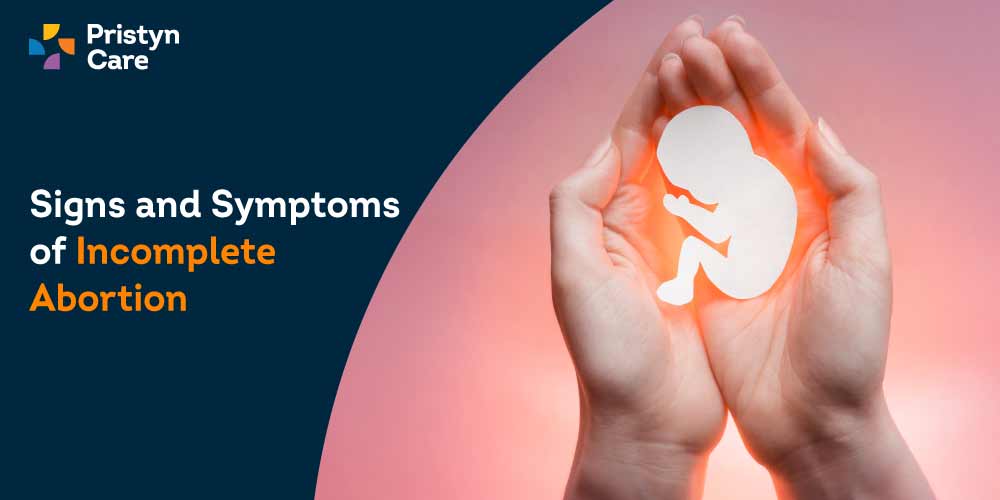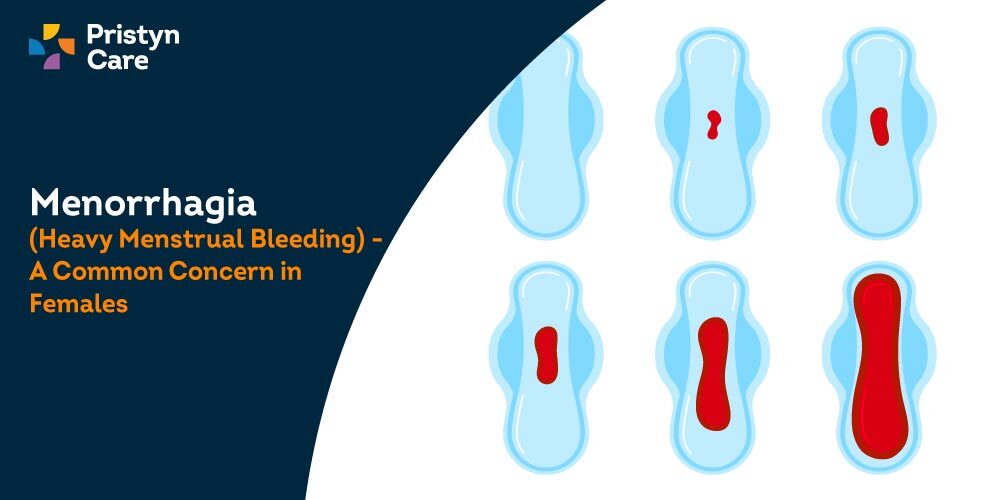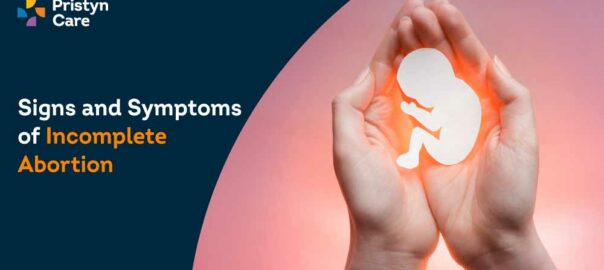![]() Views: 70,300
Views: 70,300
Side Effects of Abortion Pill for Future Pregnancy
It is normal to experience certain side effects from abortion pills. Medicine and surgery are two basic methods of abortion. Medications known as "abortion pills" are used to perform medical abortions. Contrarily, a surgical abortion involves a quick technique termed suction and evacuation to end the pregnancy while the woman...
is under anesthesia. Read moreDedicated Support at Every Step!
Our Doctors are available 24 hours a day, 7 days a week to help you!
Table of Contents
Side Effects of Abortion Pill
Two tablets are used to perform a medical abortion. These medications are misoprostol and mifepristone. Both of these pills are frequently offered as a kit in India. Unwanted Kit, Mifegest Kit, and other popular brands are a few examples. These must be legally obtained from a licensed gynecologist after proper consultation, as they are not legally sold over the counter. These medications block the progesterone's action. The uterine lining will deteriorate without progesterone, and the embryo will no longer be connected. Contrarily, misoprostol causes the uterus to constrict, hemorrhage, and expel the embryo.
In some cases, these medications may lead to severe symptoms such as bleeding, cramping, vomiting, etc. Read this blog to understand fully the negative consequences of abortion pills and the significance and importance of updating your gynecologist frequently throughout the procedure.
No Cost EMI, Hassle-free Insurance Approval
What are the Side-Effects of Abortion Pills?
Medical abortion is a safe and effective way to terminate a pregnancy. Even so, it can show some side effects, especially after you take misoprostol. Side effects usually begin within 2-24 hours of taking it. Some prominent side effects of abortion pills include:
Cramping:
You can experience cramping, especially after taking misoprostol. The main reason behind this is that misoprostol causes strong uterine contractions to help your body pass the pregnancy tissues. Your healthcare provider may recommend an over-the-counter or pain reliever to help you feel more comfortable. However, you must avoid taking aspirin since it can cause more bleeding.
Vaginal Bleeding:
As the pregnancy tissue leaves your body, it causes vaginal bleeding. This is sometimes heavier than your normal period. You may also pass tissue and clots. healthcare providers usually recommend using sanitary pads for a few days to keep track of your bleeding. In some rare cases, if the bleeding is too heavy, you may require surgery.
Also read: Menorrhagia (Heavy Menstrual Bleeding) – A Common Concern In Females
Nausea:
After taking misoprostol, you may feel nauseated or generally unwell. These side effects are temporary and don’t last for very long. But if you feel this way more than 24 hours after taking misoprostol, then you must seek treatment help. If nausea, weakness, diarrhea, or vomiting goes on for so long, then you must contact your healthcare provider, as it can be a sign of serious infection.
Fever or chills:
It is possible to experience chills or fever during a medical abortion. However, like nausea, this is also temporary. But if you have a high fever of around 100.4°F and lasts for 4 hours or more, you must contact your healthcare provider. It can be a sign of serious infection, especially if you have a fever more than 24 hours after taking misoprostol.
Incomplete abortion:
In general medical abortions are effective at terminating a pregnancy. But in some cases, they don’t work even if you have experienced the expected side effects. It is extremely important to follow up with your health care provider 1-2 weeks after medical abortion. In such cases, there’s a small chance that you may still be pregnant. In this case, a surgical procedure may be required to complete the process.
Heavy bleeding:
Although bleeding is normal, there are certain situations that may require medical attention. This includes if you’re bleeding through two full-size sanitary pads every hour for at least 2 hours or if you’re concerned about how much you’re bleeding. If this happens, contact your healthcare provider right away.
Blood clots:
You might notice some blood clots while you bleed, as was previously described. Unless they're massive (i.e., bigger than a lemon) or you've been passing them for two hours or longer, this is normal. In this situation, get in touch with your doctor right away.
Severe infection
More than 24 hours after taking misoprostol, experiencing stomach pain or feeling unwell (with or without a temperature) may be an indication of something more serious, such as an infection. In this situation, get in touch with your healthcare practitioner right away. Additionally, if you've had a fever of 100.4°F or higher for more than 4 hours, you need to contact them right away.
What Happens When You Take the Abortion Pills?
When you take abortion pills, they work to end an early pregnancy. The process typically involves taking two different medications: mifepristone and misoprostol. Here's what generally happens:
Mifepristone:
The first pill, mifepristone, is taken with the guidance of a healthcare provider. It blocks the hormone progesterone, which is necessary for maintaining pregnancy. This leads to thinning of the uterine lining and detachment of the embryo.
Misoprostol:
After about 24 to 48 hours, the second medication, misoprostol, is taken at home. It causes contractions of the uterus, leading to the expulsion of the pregnancy. This is accompanied by heavy bleeding and strong cramping.
Expulsion of the pregnancy:
Within a few hours of taking misoprostol, the pregnancy, along with the uterine lining, is expelled from the body. This process can take several hours to a few days.
Follow-up care:
It is important to follow up with a healthcare provider to ensure the completion of the abortion and address any concerns or complications. This may involve an ultrasound or blood tests.
It's important to remember that everyone's experience may differ. Some individuals may experience side effects like nausea, vomiting, fatigue, or headaches. The severity and duration of these side effects can vary. If you experience severe pain, excessive bleeding, or worrisome symptoms, it is crucial to seek medical attention. Consulting with a healthcare provider before deciding on a medical abortion is highly recommended to receive accurate information, guidance, and appropriate care throughout the process.
MBBS, MS - Obstetrics & Gynaecology, DNB, MRCOG (Part 1) FIRM
₹1000₹500Consultation Fee
MBBS, FAGE, DNB, MD(AIIMS DELHI ), FICMCH, FMAS, DIPLOMA IN ADVANCED ART (GERMANY)
₹1000₹500Consultation Fee
MBBS, DIPLOMA IN OBSTETRICS AND GYNAECOLOGY FELLOWSHIP IN GYNAECOLOGICAL LAPROSCOPIC SURGERIES.
₹1000₹500Consultation Fee
Do Abortion Pills Have Long-term Side Effects?
Generally, abortion pills are safe and effective. It's a common way to have an abortion, and millions of people use it safely during pregnancy. Hence, there are no common long-term side effects of abortion procedure.
Medical abortion usually does not affect future pregnancies or your overall health unless a rare or serious complication occurs. Moreover, it does not affect fertility or increase the risk of having cancer. Abortion pills have no side effects for future pregnancy, such as birth abnormalities, premature birth or low birth rate, ectopic pregnancy, miscarriage, or infant death.
However, in some cases, women can experience serious long-term emotional problems following an abortion. They are more likely to occur in women who have to terminate (end) their pregnancy for health reasons or women who do not have support in their decision to have an abortion, or those who have a history of mental health problems. Most women feel relieved after having an abortion for an unwanted pregnancy. However, some women experience depression, anxiety, guilt, mood swings, etc.
Is Constipation a Side Effect of the Abortion Pill?
Constipation is a common side effect of the abortion pill. Many women experience diarrhea, nausea, or constipation after having an abortion. Constipation, diarrhea, and nausea are side effects of abortion partially caused by the hormonal changes a person experiences after the procedure. Even after an abortion, the pregnancy hormones will circulate in your body for a while. The hormones of pregnancy lower the metabolism, which has an impact on bowel movements as well.
To restore your iron levels after the blood loss brought on by abortion, your doctor may prescribe iron supplements. Constipation is a known side effect of iron supplementation. It is often recommended to consume extra water and eat meals high in fiber to control constipation. If you experience severe pain or weakness, then contact your doctor immediately and seek treatment help.
How Long Do the Side Effects of Abortion Last?
The differ from person to person. On the day you take your second pill, try to rest and be in a comfortable place. You could feel exhausted for one or two days after taking the pill, but you will feel normal soon.
If you feel well enough, you can return to work and most other normal activities the next day. But for a few days, you should avoid doing excessive physical activity or strenuous exercise. As time passes, you will start to feel better, but if you still feel unwell or too weak, contact your doctor immediately.
As the hours and days pass after your abortion is completed, the cramping and vaginal bleeding decreases. Additionally, you can experience breast tenderness, and they may leak a milky discharge. This usually stops in a few days. You’ll feel more at ease if you wear a snug-fitting bra.
Chills, fevers, or nausea that you experience usually go away gradually. If you have nausea, vomiting, diarrhea, or a fever for more than 24 hours after taking misoprostol (the second set of pills), call your doctor immediately, as it could be a sign of an infection.
Conclusion
In conclusion, while abortion pills are a safe and widely used method for terminating pregnancies, it's important to be aware of potential side effects. These may include cramping, bleeding, nausea, and fatigue. Consulting with a healthcare provider and having a support system in place is crucial. Women should be supported in their reproductive choices without judgment or stigma.
Moreover, it is important to acknowledge that abortion pills may have emotional and psychological effects on individuals. Having a support system in place and considering counseling or support groups can be beneficial in navigating the emotional aspects of the abortion process.
- Also Read: Why I am not getting pregnant- Common Factors
- Also Read: Cure Piles in 3 Days
- Also Read: 4 Methods for Kidney Stone Removal
- Also Read: Laser Circumcision - Benefits & Recovery












